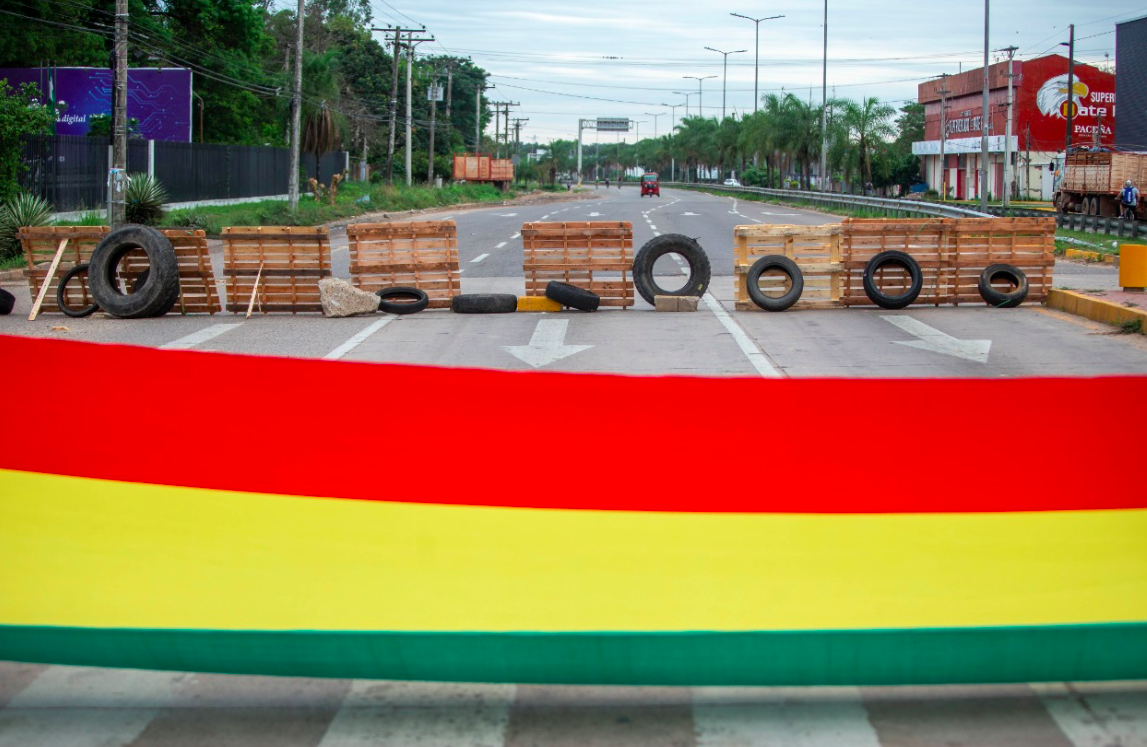Santa Cruz, the largest region and economic engine of Bolivia, develops this Monday the third day of indefinite strike due to the completion of the census in 2023, amid tensions with the government groups that sought to unblock the streets of the city that woke up obstructed.
In the morning, incidents were reported between some groups of people who demanded that circulation be resumed on the main streets and avenues where blocking points were installed by civic groups.
Read also: Check out our coverage on Bolivia
“We are going to unblock the entire city,” we are going to “continue cleaning all the streets,” one of the protesters who said he was a carrier and that the indefinite strike affects his daily livelihood told the media.

CALL TO STOP
In return, the opposition leader and governor of Santa Cruz, Luis Fernando Camacho, called on Twitter for the population to take to the streets and squares in a “peaceful manner” and “with the conviction and joy of carrying out a citizen action that will go down in history.”
Camacho insisted that “the sacrifice (of the strike) is for a few days, but the benefit will remain forever.”
“The strike will continue, the strike continues until the government signs the decree where it says that the census will be carried out in 2023,” the vice president of the Santa Cruz Civic Committee, Stello Cochamadini, said at a press conference.
This Monday morning, the Bolivian president, Luis Arce, was in Warnes, a neighboring city of Santa Cruz, to deliver a social bonus to students at the school level of the public system in which he did not refer to the conflict over the census.
However, in a tweet, he highlighted the support given to him by peasant organizations in the country’s Amazon and stressed that “it is necessary to work to advance” and thanked that sector for “being alert to destabilization attempts.”
A meeting has been announced for this Monday between the president and the former president and leader of the ruling Movement for Socialism (MAS), Evo Morales, to assess the effects of the protest in Santa Cruz.
OTHER CONFLICT FRONTS
Several mobilizations are planned for this day in other parts of the country, some to express their demands to the Government while others announced that they will take to the streets to support the Arce Administration.
For its part, the Amazonian department of Beni is also carrying out a 24-hour strike for the request that the census be carried out in 2023, while Tarija plans to apply the same measure next Thursday.
In the regions of Oruro, Potosí, Chuquisaca, Cochabamba and La Paz, the organizations that support the Santa Cruz request are still analyzing the measures they will take in the coming days.
Also from this day, the Bolivian Medical Association, critical of the Government, announced a 15-day strike in opposition to the creation of a new deputy ministry and insurance for public officials.
Given this, the Minister of Health, Jeyson Auza, warned that doctors who “are encouraging unemployment” and do not attend their work “will have the corresponding sanction.”
Meanwhile, thousands of cooperative miners installed a massive protest in the center of La Paz to ask the Government to pay attention to their sectoral demands such as the gold tax regime and legal security, among others.
Last Saturday, the government convened a dialogue with the civic leaders of Santa Cruz, which after a few hours ended with the departure of the representatives of the 2023 Census Driving Committee and the ratification that the indefinite strike would remain in place.
The National Executive proposed that the census be carried out in April 2024 and that in six months, with the issuance of the preliminary results, a new distribution of resources for the country’s regions begins.
Although both parties have been open to dialogue, this process has not been resumed, even the civic sectors of Santa Cruz requested the mediation of the Catholic Church.
Santa Cruz leads the demands for the census to be carried out in 2023, on whose data a new allocation of resources and representation quotas in Parliament depend, so that its results are applied in 2025, a management in which the presidential elections are planned.
Initially, the census was scheduled for November of this year, however, the government postponed it to 2024, arguing technical problems and the need to “depoliticize” the process.
With information from SWI and EFE

